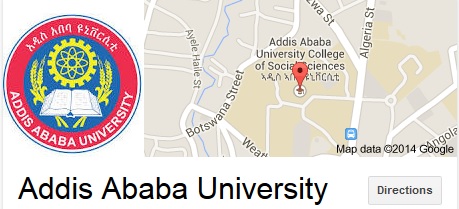Overview
Anthropology means ‘human study’. Social anthropology, one of anthropology’s subfields, takes as its subject matter the comparative study of cultures and societies in the contemporary world. Although some people view social/cultural anthropology as devoted to documenting the ‘exotic’ customs of people in remote and far-flung areas, it is only by learning about cultural variations and similarities that we will be able to avoid generalizing about ‘human nature’ solely on the basis of observations from our own culture. This strong comparative tradition in social/cultural anthropology helps to reduce the possibility that our understanding and thoughts about human nature will be culture bound.
A full-fledged Department of Social Anthropology (SOAN) was established at Addis Ababa University (AAU) in the fall of 2007. From its inception, SOAN has become a major Department of the College of Social Sciences (CSS) in its staff profile, program diversity, and size of student population. The Department is presently running three programs: two regular graduate programs (MA and PhD), and one undergraduate program (BA). The BA and MA programs are also offered as part of the evening program in the Extension Division. Of all the programs the Department currently runs, the MA program is the oldest (started in 1990) and actually a precursor to the other programs. This MA program has succeeded in creating the foundation for high level anthropological research and training in Ethiopia.
Currently, SOAN is among the major departments of the College of Social Sciences in its staff profile, program diversity and student population. The Department has 17 academic staff, out of which 23.5 % are female; 70.5% are with the academic rank of assistant professor and above, and 29.4% are pursuing their PhD studies. The Department currently has over 300 students out of whom over 170 are undergraduates, studying in both the regular and evening programs. There are over 95 MA students enrolled both in the regular and evening programs and 34 regular PhD students at various levels of their studies. The first two doctoral students graduated in the 2013/14 academic year. The MA and PhD programs currently focus on training academic staff for the established and emerging public universities in the country.
The graduates of the Social Anthropology program from AAU acquire wide-ranging conceptual, pragmatic, and methodological competencies that shall prepare them to: (a) understand Ethiopian societies and cultures in their own terms; (b) conduct and coordinate multi-disciplinary research by promoting and understanding thediverse cultures and perspectives; (c) contribute as practitioners in the areas of development, health, peace and sustainable environment of the country in specialized areas of anthropology; and (d) advocate on behalf of disadvantaged groups, including pastoralists, peasants, minorities, refugees, the poor, the handicapped, the dislocated, women and children, who require a culture-sensitive and compassionate understanding to their causes.
ESTABLISHMENT AND GRADUATE PROFILE
Establishment
Anthropology has a long history at Addis Ababa University. The Department of Sociology and Anthropology came into existence at Addis Ababa University in 1962. Later it merged with the School of Social Work in 1978 to become the Department of Applied Sociology. Subsequent curriculum revisions resulted in the change innomenclature of the Department to the Department of Sociology and Social Administration (SOSA) in 1983/4. In 1990, the MA program in Social Anthropology, the first of its kind in Ethiopia, was established through the cooperative agreement between the Christian Michelson Institute (CMI) of Norway and the Department of SOSA at AAU. This program has succeeded in laying the foundation forhigh level anthropological research and training in Ethiopia.
Subsequent revisions again resulted in the change of the name of the Department from Sociology and Social Administration to Sociology and Social Anthropology in 2002/03. For the past many decades the disciplines of Sociology and Social Anthropology have been expanding and the recognition of the contribution of these two interrelated disciplines for socio-economic development has also been increasing from time to time. In order to meet the growing demand for the graduates of sociology and anthropology, the need for separate departments for Sociology and Social Anthropology became unquestionable. As a result, the Department of SOSA, at its meeting held on 26th of October 2007, established different committees to work on separate curricula for undergraduate and PhD programs in Sociology and Social Anthropology. It is out of this background that the fully-fledged Department of Social Anthropology was established in 2008. Subsequently, a new undergraduate program in Social Anthropology was launched in the same year and a new PhD program in Social Anthropology was started a year later.
The Department was formed with the aim to produce qualified graduates who will provide professional services in the governmental, non-governmental, community-based organizations and academic and research institutions of higher learning. It also endeavors to feed into the expanding postgraduate programs (both MA and PhD) in social sciences and humanities in general and in Social Anthropology in particular.







